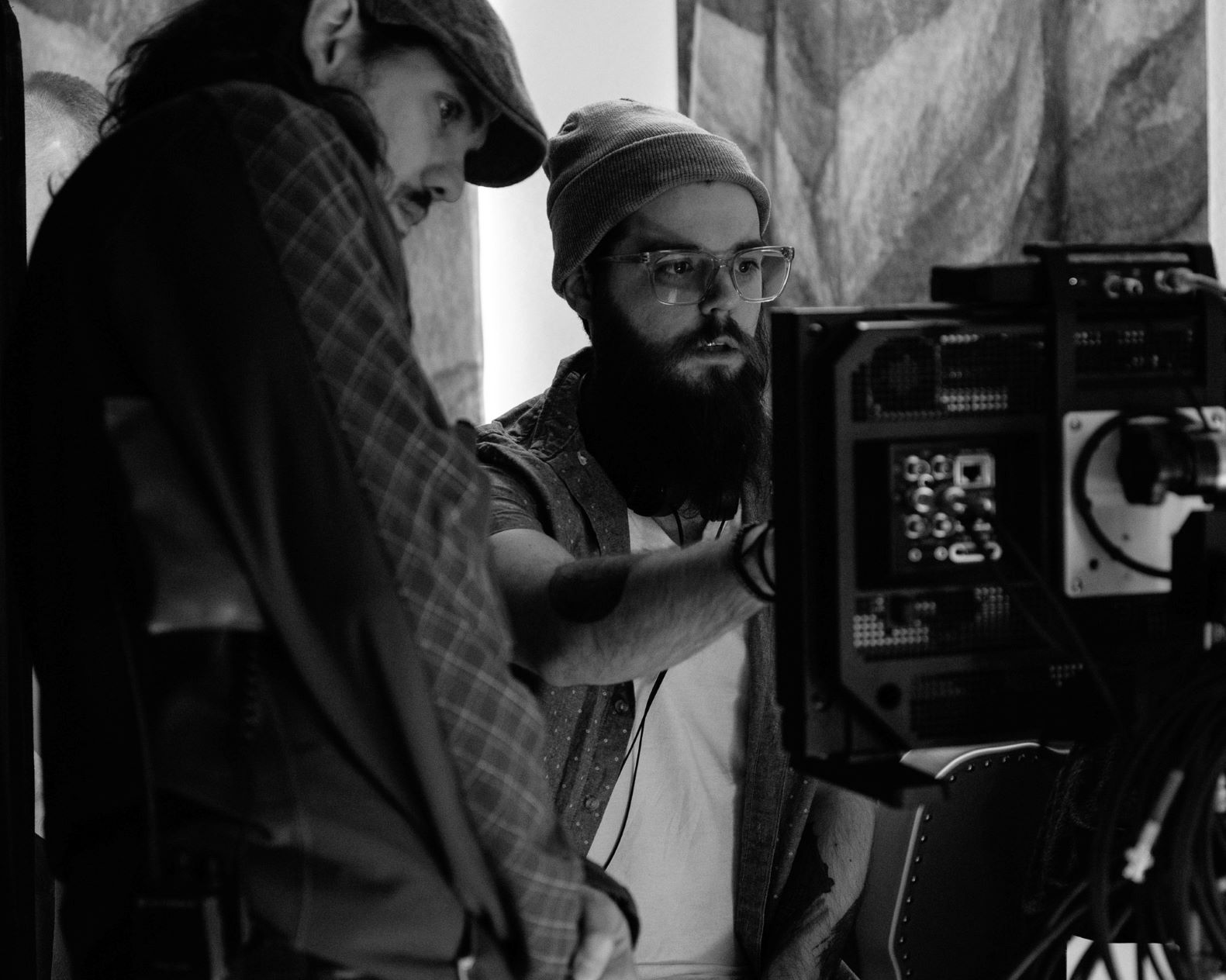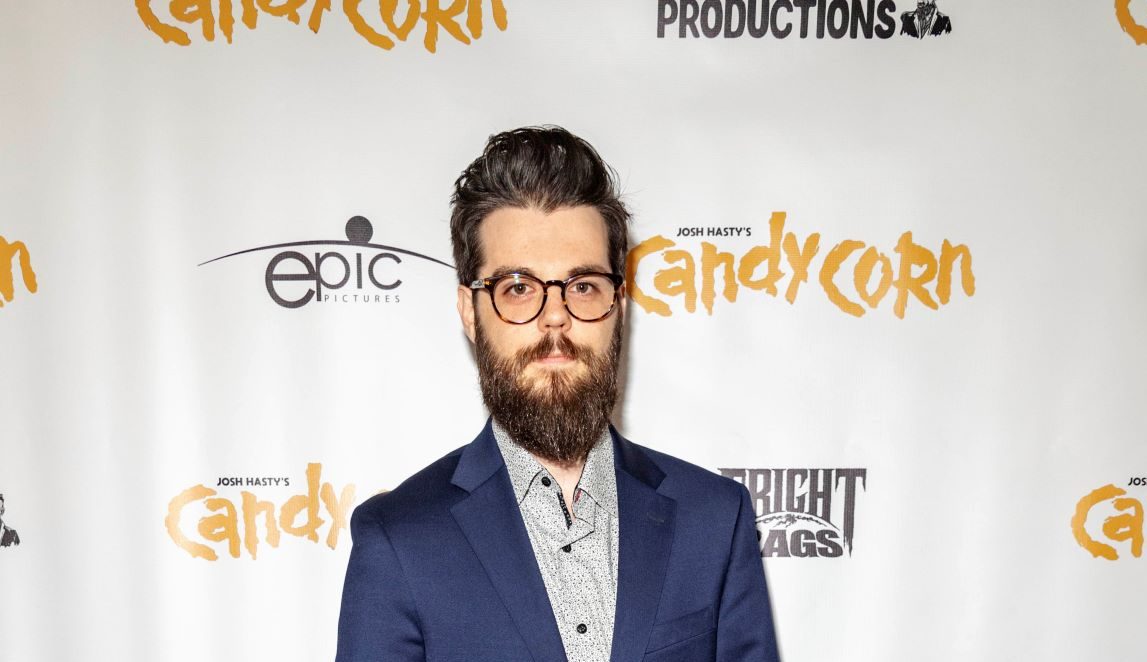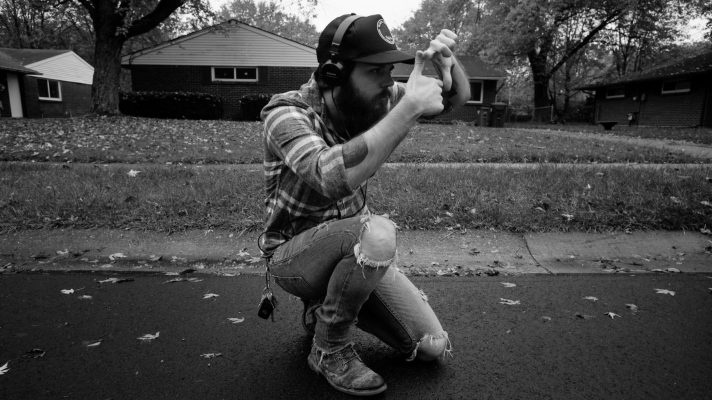Josh Hasty is a filmmaker, entrepreneur, and musician based in Cincinnati, Ohio. He has found great success across multiple disciplines, from creating award-winning haunted attractions to micro-budget horror films, to behind the scenes documentaries. Most recently he produced and directed his own indie horror feature film, Candy Corn.
We caught up with Josh a year after he learned the TM technique to find out more about his life and how his TM practice features in it.
What describes your approach to life?
I know I’m here now; I’m not sure if I’ll be here tomorrow; and if I don’t give this everything I’ve got, someone else will.
What does a typical day in your week look like?
My typical day varies depending on which projects I’m working on at the time, and where those projects are in their lifecycle. One day I might be alone in my head, writing or editing, and the next I’m travelling across the country and surrounded by tons of people. The sporadic jumping from one end of the spectrum to the other has become what’s typical for me. It certainly keeps me on my toes.

Photo by Justin Wysong
How does the TM technique fit into your life?
It’s quite literally the cornerstone of my days. It’s the first thing I do when I wake up, and it’s what gets me through the last part of my days. On significantly stressful days, it’s also the one thing I count on to help bring me back to earth and think clearly.
Do you feel that the TM technique has helped you accomplish your goals? If so, how?
The TM technique definitely helps me reach my goals. I’m the type of person who has more ideas than I know what to do with. That often becomes overwhelming and eventually leads to an existential crisis fueled by panic, and I don’t get anything done at all. TM helps clear the unnecessary noise in my head and helps me stay organized and focused. It’s incredible how much more productive I am since I began practicing.
What are your favorite tools for a happy and healthy life?
Great relationships, art, veganism, and of course, TM. Relationships are the foundation where everything in your life is built. No matter how strong-minded we are, well-being is fragile. A toxic person can turn your best day into a paralyzing week, and that compounds quickly. Oppositely, healthy relationships can not only make your bad days good and your good days better, but they inspire you to keep going in that direction.
Art is another tool I lean on daily. Whether it’s music, cinema, photography, painting, or the sight of immaculate gardens — I can’t imagine a life without these things. Genuine art of almost any medium inspires me to keep moving every day.
Veganism is something I NEVER thought I’d be so passionate about. I grew up in a household of hunters, and eating barbecue was one of my favorite things to do. Vegetarian was an extreme enough idea, but vegan? Forget about it. Fortunately, I was educated in a very passive manner by my fiance, Lindsey, and friend, Rob Zombie. These two people are much smarter and more enlightened than me, so I listened. I’ve now been vegan for 5 years, and it’s changed my outlook on everything.
I cannot survive without TM. It has sincerely changed my life for the better and continues to do so. What I love most about it is that it’s not something that can wear off over time. You don’t get immune to the TM practice. Instead, it’s like this little sidekick I have that goes in and clears the clutter from my brain so I can access what’s already there. It’s really scary to think about all of the ideas I’ve missed out on before I started practicing TM. But it’s exciting to see the ones I’m now able to access because of it.

Photo by Justin Wysong
Since you began practicing the TM technique have you found yourself to be more creative?
Without question! It’s actually a two-pronged effect for me. During meditation, it’s more common than not for me to be hit with new ideas or solutions to problems around an idea or project I’m working on. And outside of practice, especially in the hours immediately after meditation, I think so much clearer and easier. David Lynch refers to creatives as a conduit for ideas that come from “somewhere.” I couldn’t agree more, and since I’ve begun practicing TM that conduit seems to have gotten much wider and less clogged.
Talk about your biggest success and biggest failure. What did you learn from them?
The last few years have been filled with some of my biggest successes and failures. I think they must go hand-in-hand. My biggest success is probably the documentary I made during the making of Rob Zombie’s film, 31. I never went to film school or had any formal training whatsoever. I didn’t even have friends that were into the same things I was into growing up. The way I learned about films, and specifically what it takes to make films, was by studying the incredibly elaborate behind-the-scenes documentaries that accompanied all of Rob Zombie’s films.
I had the insane opportunity to do one (documentary) for Rob Zombie’s upcoming film, 31. That in itself was a surreal success, but it ended up being a lot more than I had anticipated. I got to be a fly on the wall of my main inspiration for over two months straight. Somewhere along the way, he sort of took me under his wing, and to this day he continues to be a sounding board and mentor to me.
My biggest failures can all be summed up in not learning to say “no” sooner. It’s a matter of self-worth that ultimately dictates how people value you and your time. Like many creatives first starting out, I would say “yes” to any job offer, at any price – even free. Before you know it, you’re the budget-friendly option, and people don’t respect that. I eventually learned that no one is going to put a high value on me, other than me. So I put a value on my time and abilities and if an opportunity came up that I felt was going to take advantage of that value, I simply said “no.” Like magic, better opportunities started to come my way because the right people noticed and appreciated that value. I’m sure I’d be a lot further than I am today if I would’ve learned that lesson sooner, but I can’t complain.

Photo by Eugene Powers
If you could give someone one piece of advice when thinking about pursuing a life/career like yours, what would you tell them?
I tell everyone who asks me that the same thing: if there’s anything else in your life that you think you might want to do, try that first. A career in the creative field is not one you can just dabble in. It has to consume you if you want to succeed. The thought of not doing it should make you physically ill. Like Bukowski says in his poem, “So You Want to be a Writer?”, “If it doesn’t come bursting out of you in spite of everything, don’t do it.” That says it all. And if you do feel the fire in your gut that knows you were put on this planet to do something creative, you will succeed.
There’s no one single path to success, but every success story has a few things in common: drive, hard work, perseverance, and some sort of malleable blueprint. No one is going to come knocking on your door to deliver your hopes and dreams. Those things are all locked up somewhere, and it’s your job to go kicking down every door until you find them. And if you’re certain they’re out there, you will find them. After that, it’s up to you to hold on to them and make them grow.
Find your local TM teacher ►




